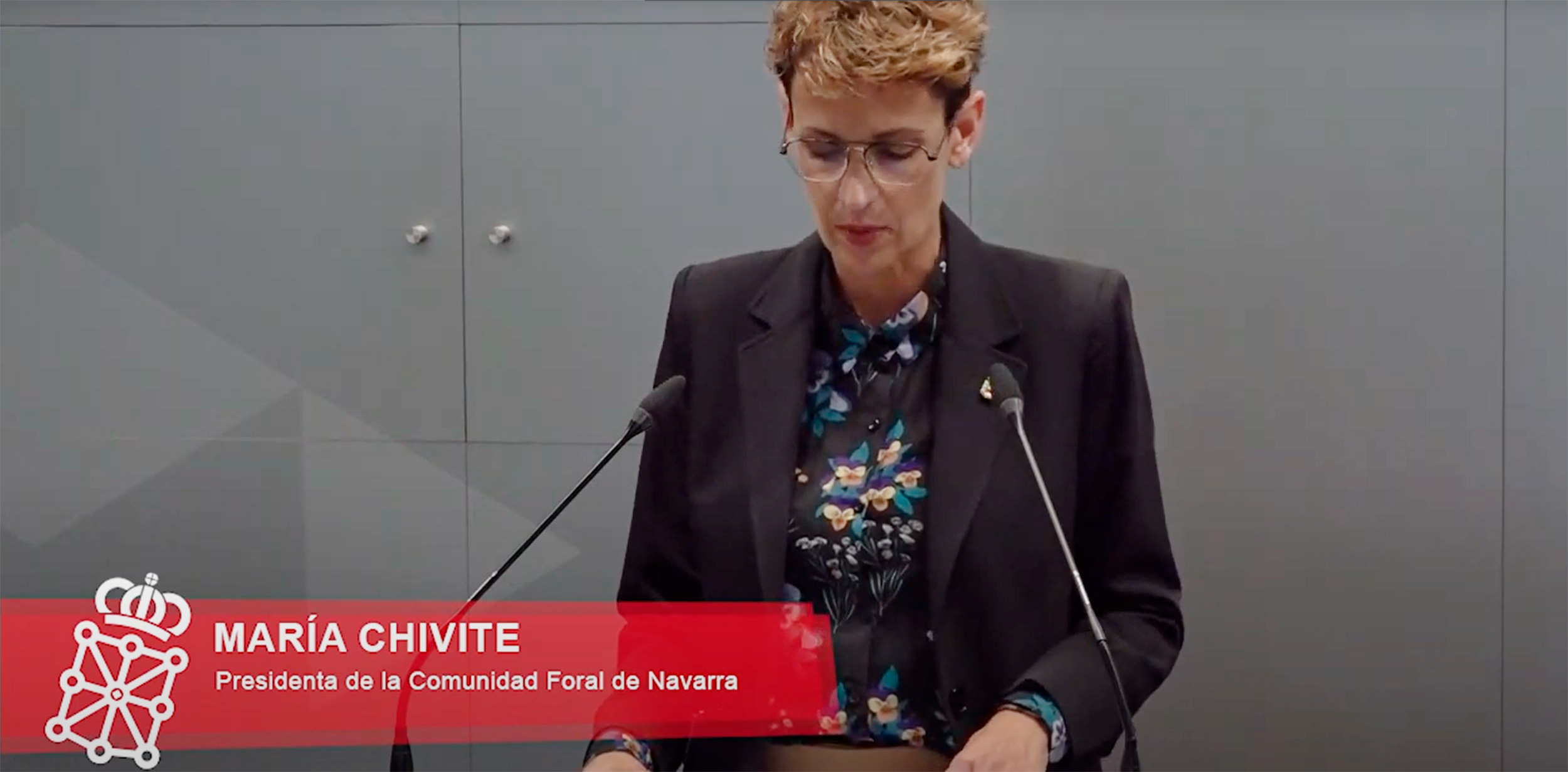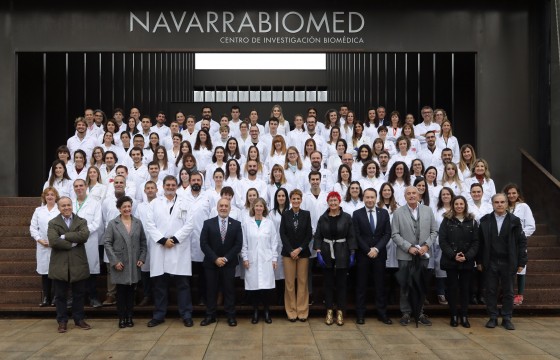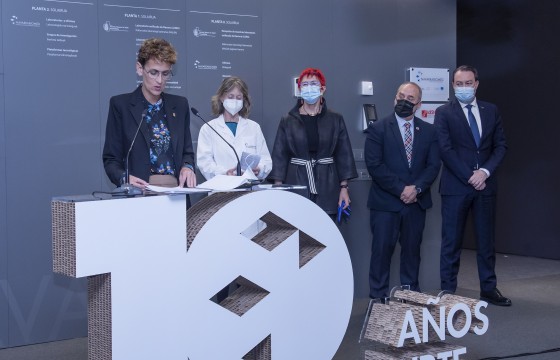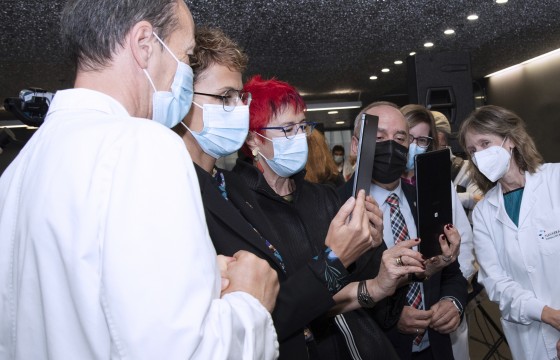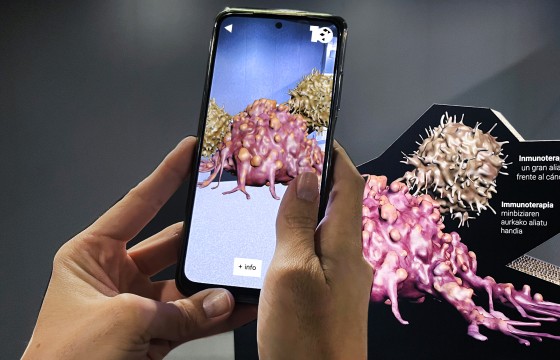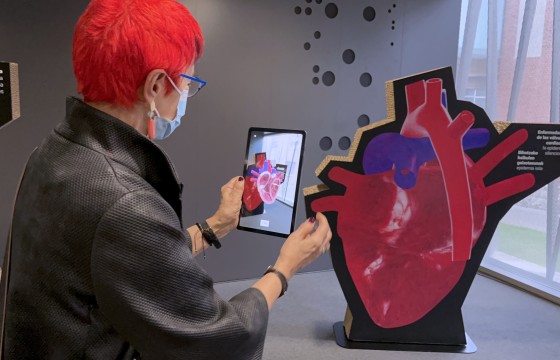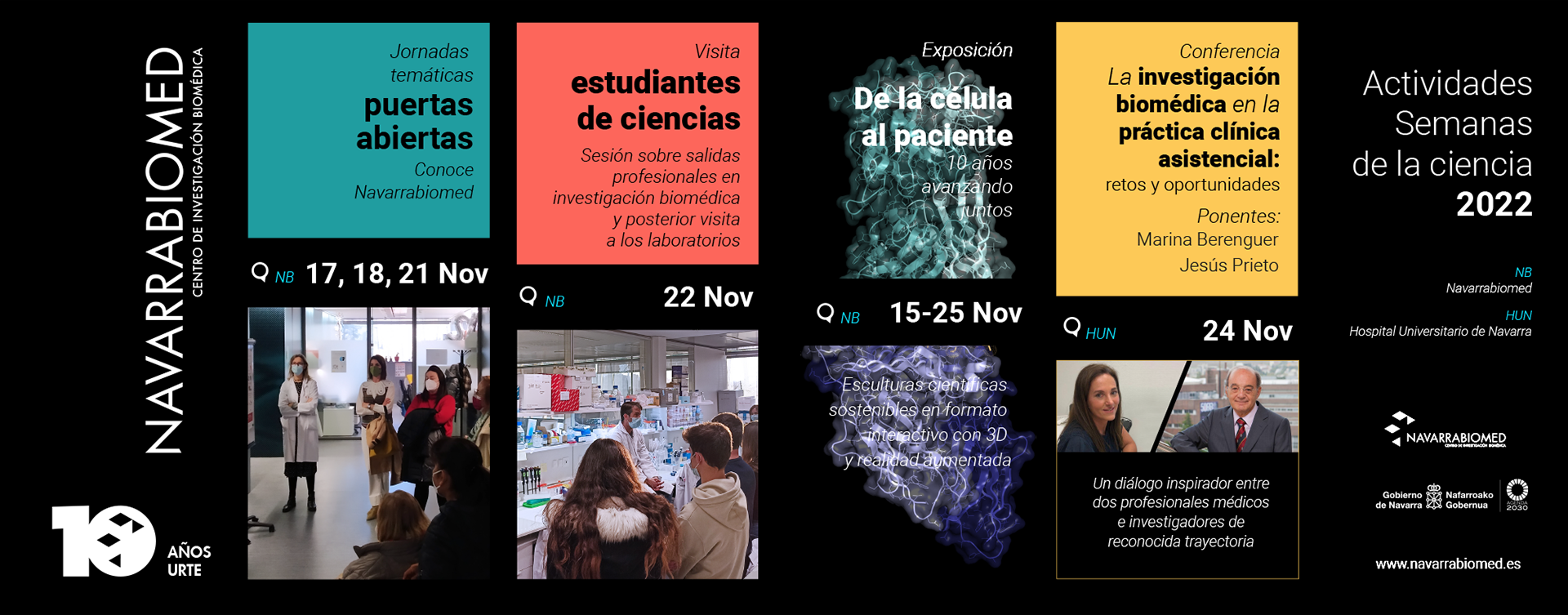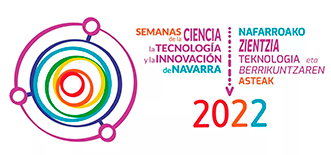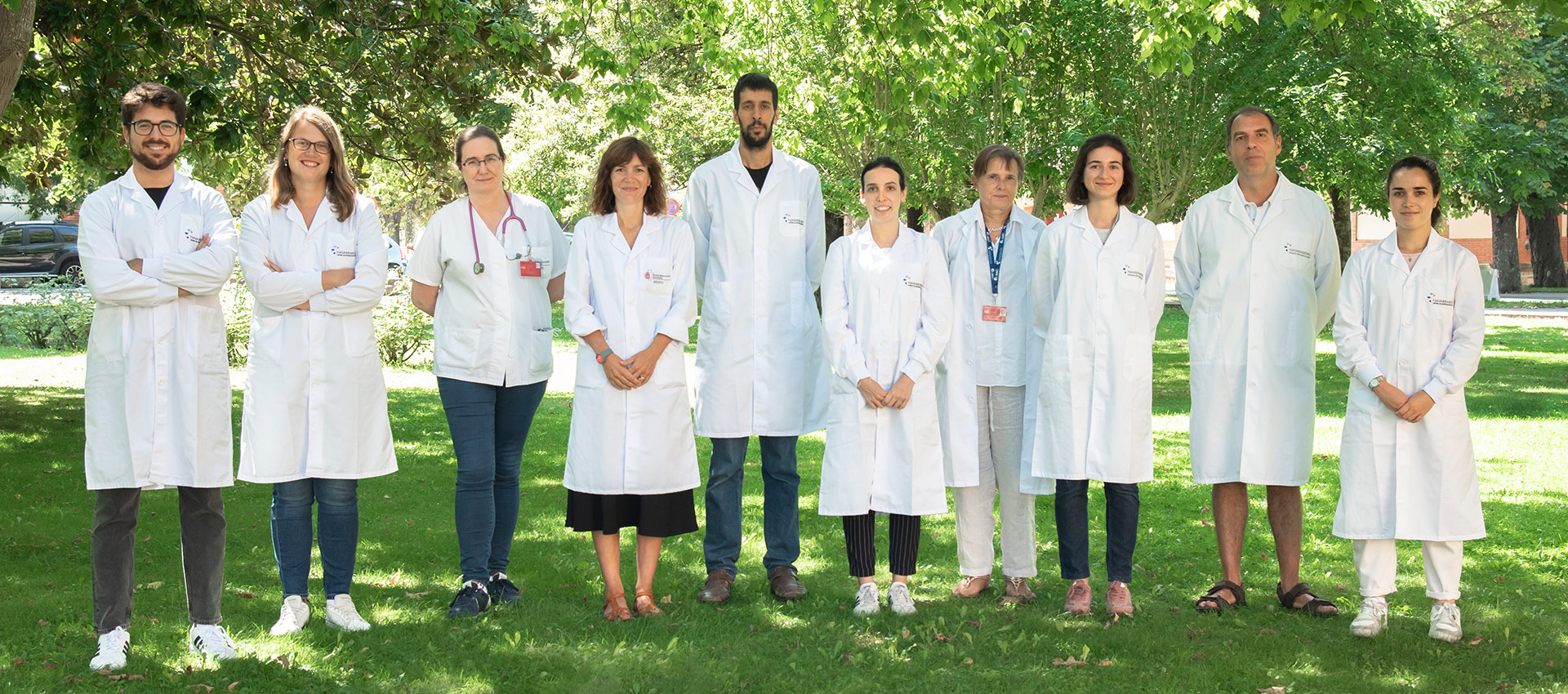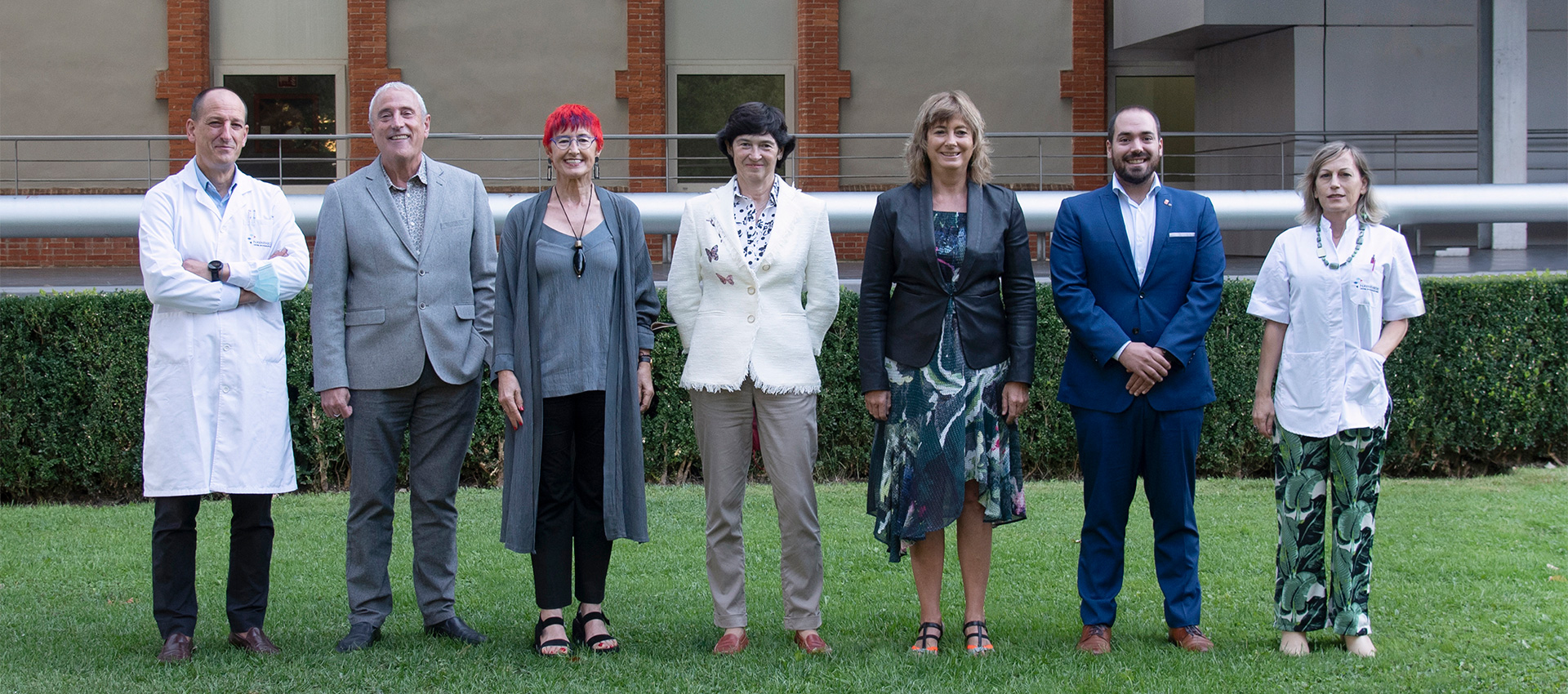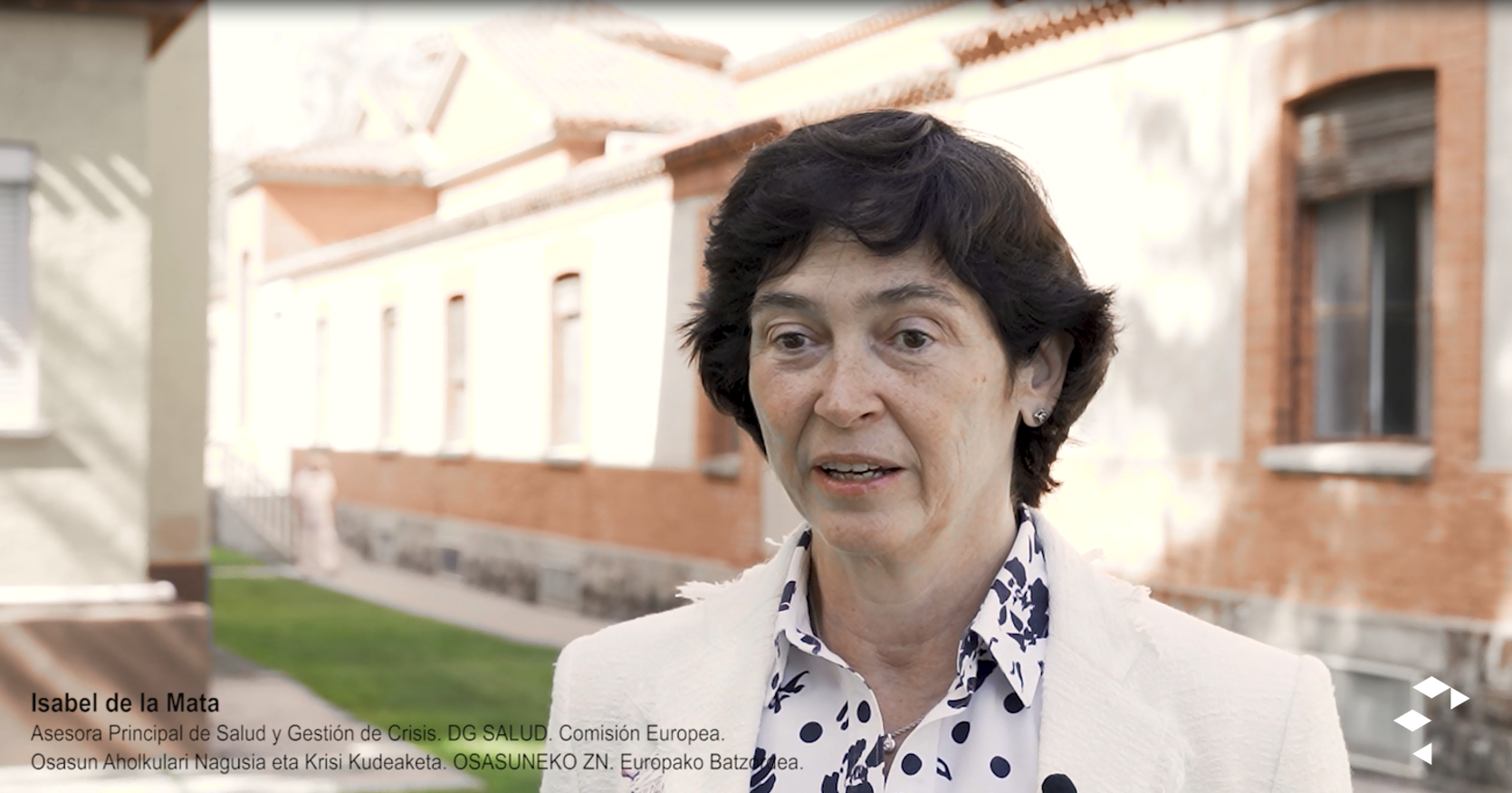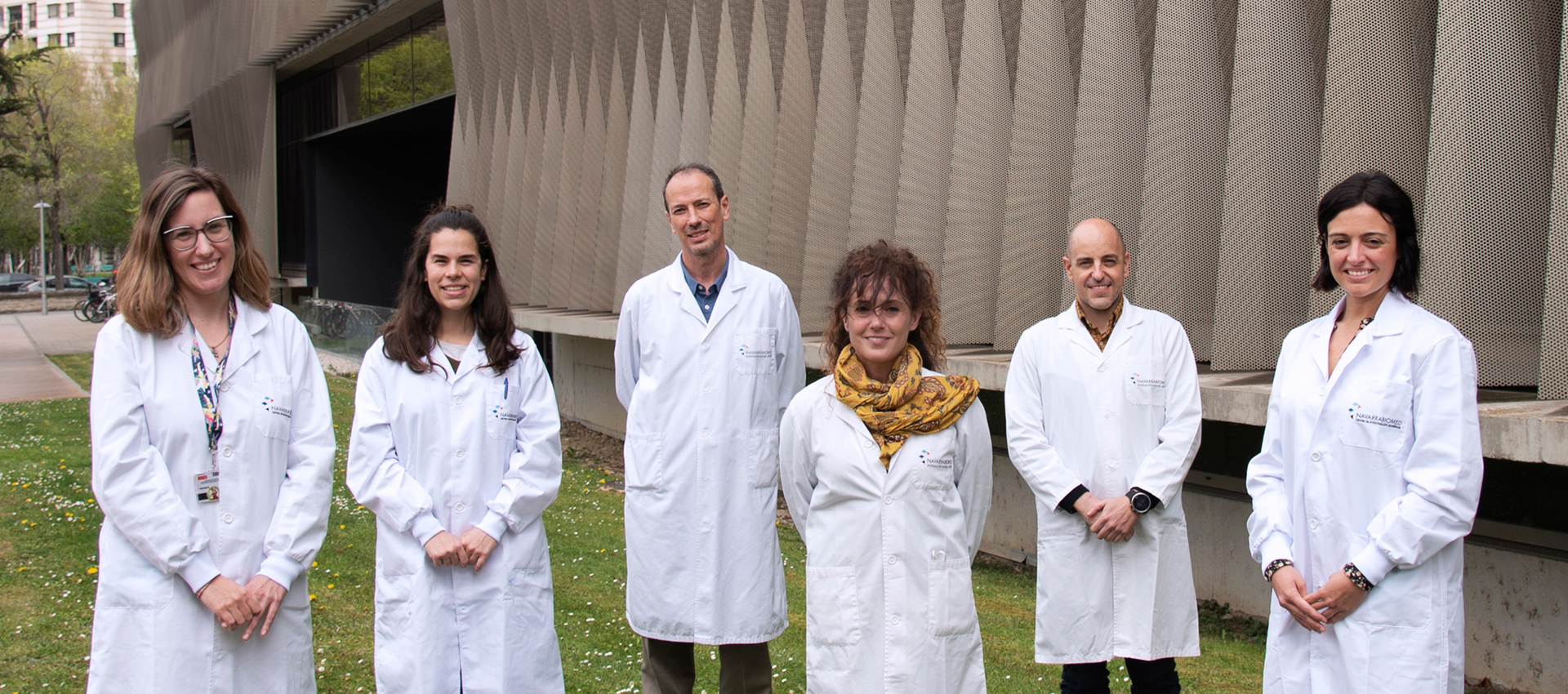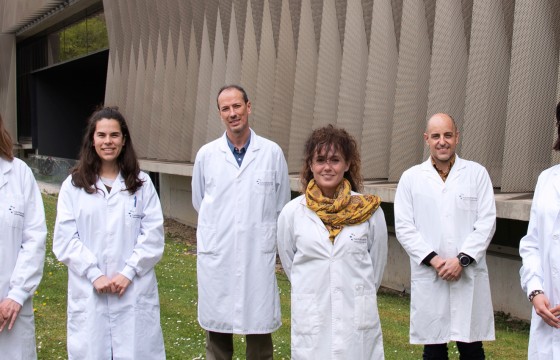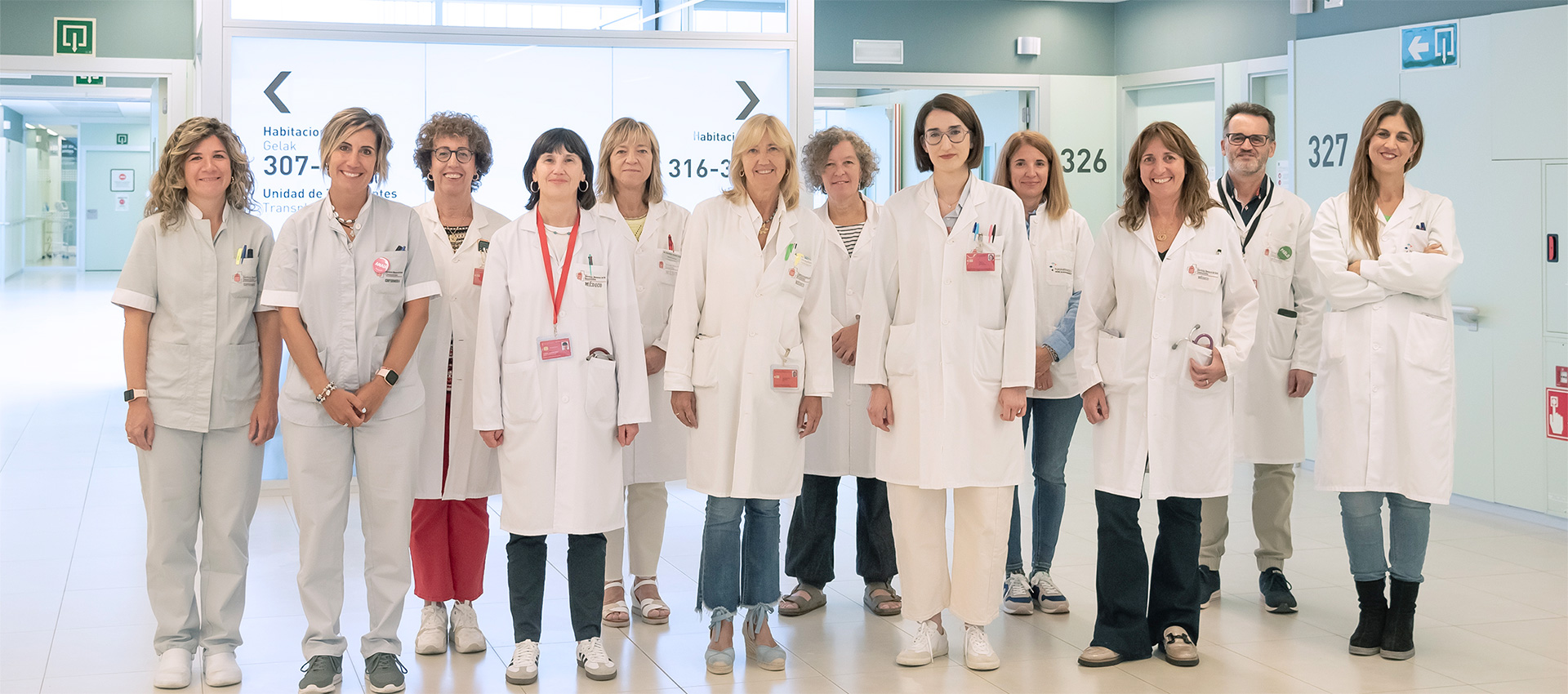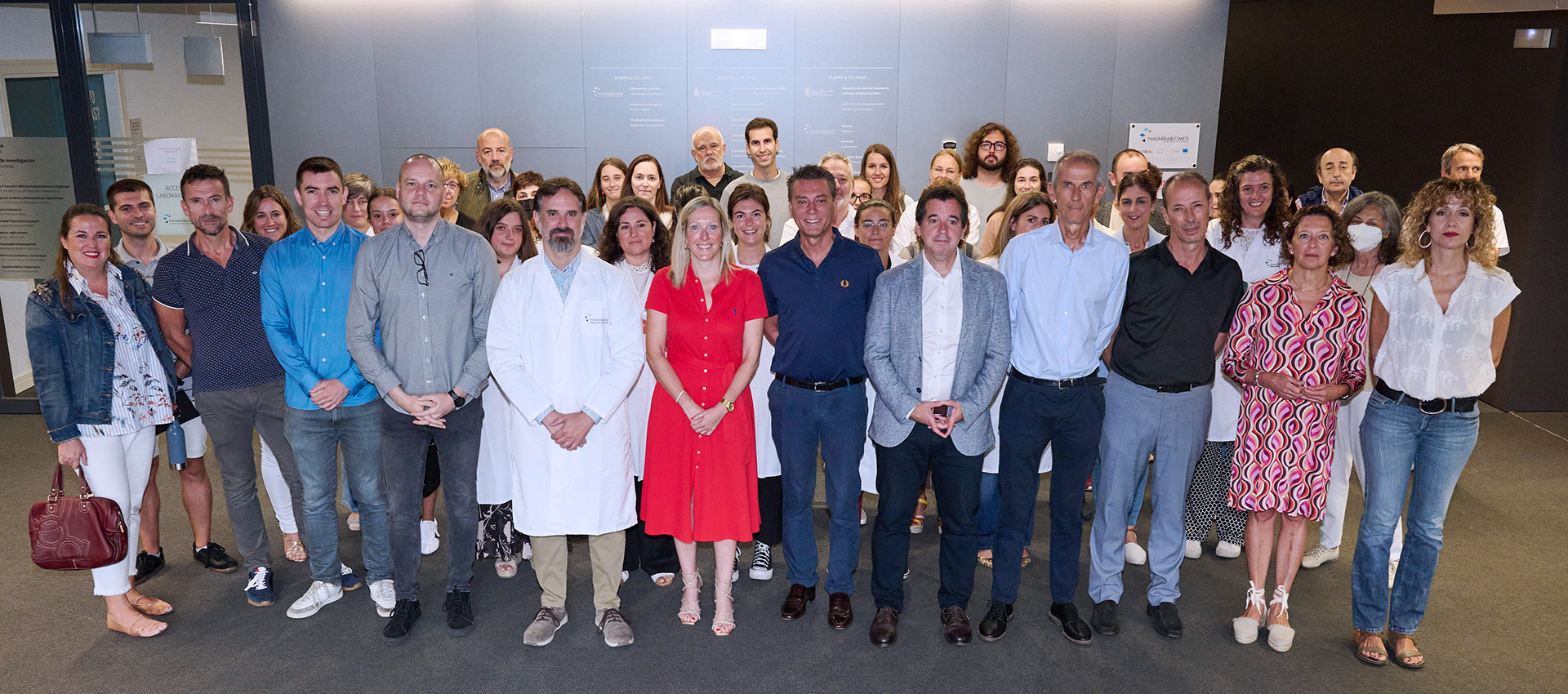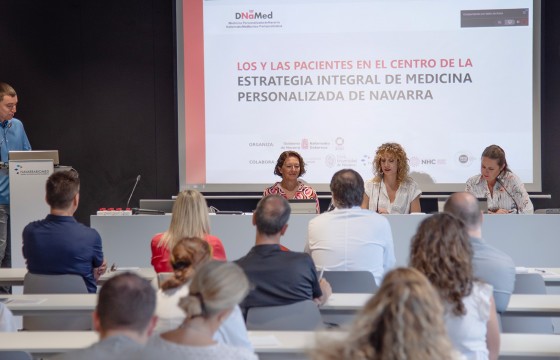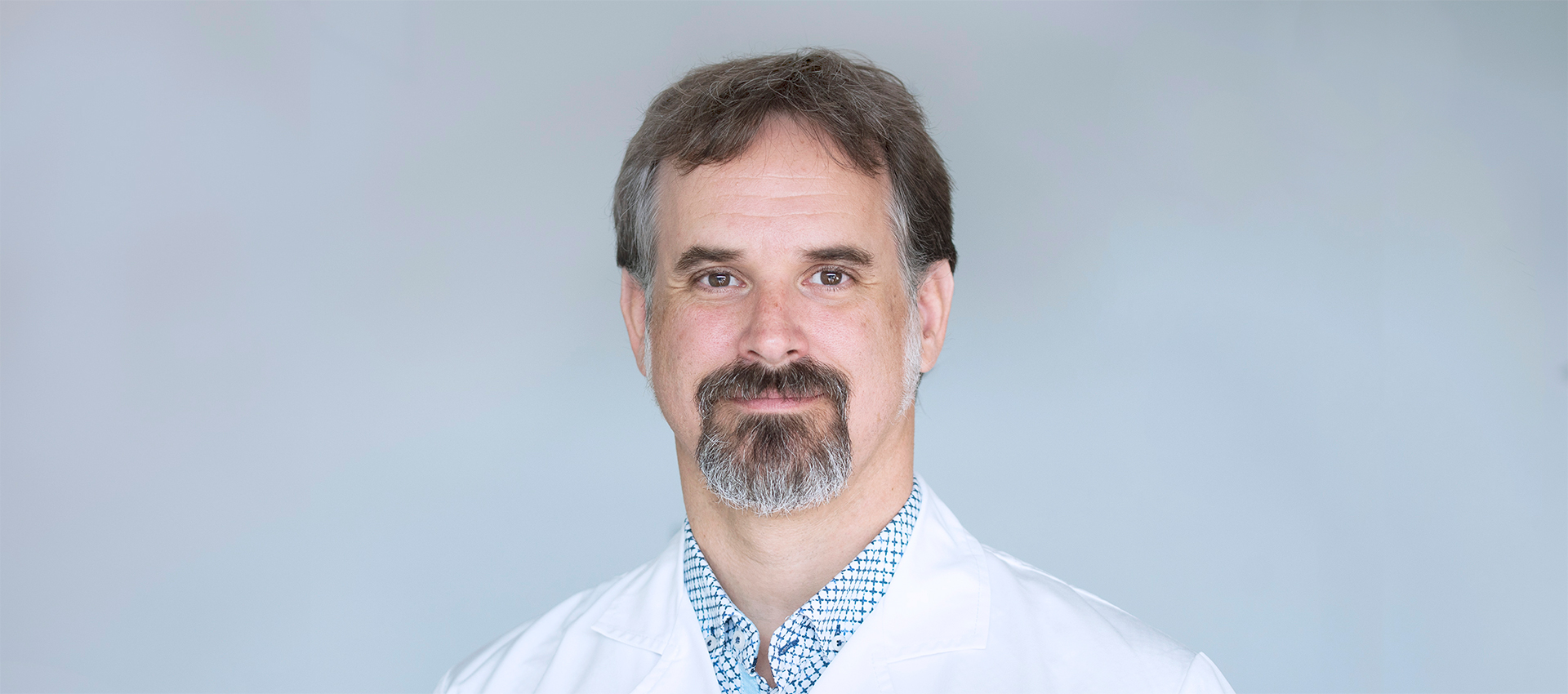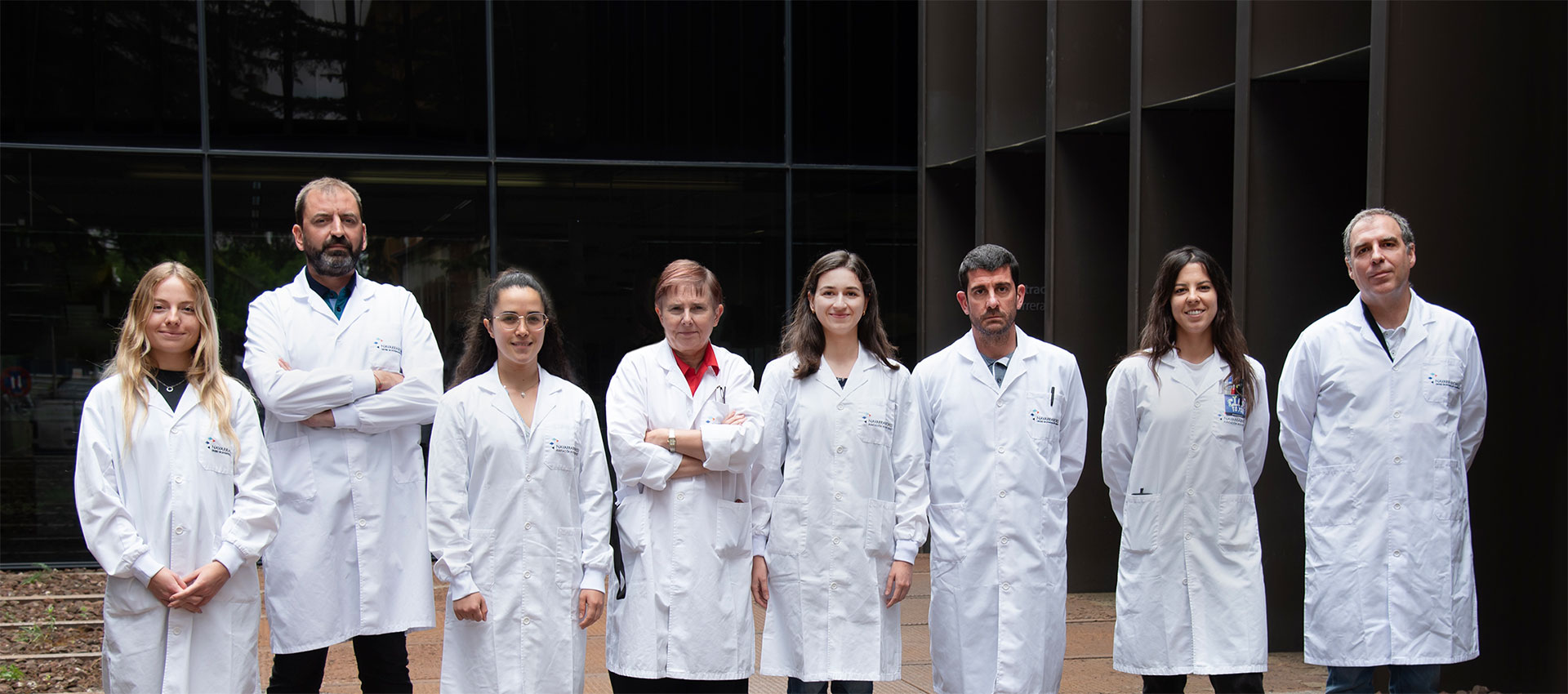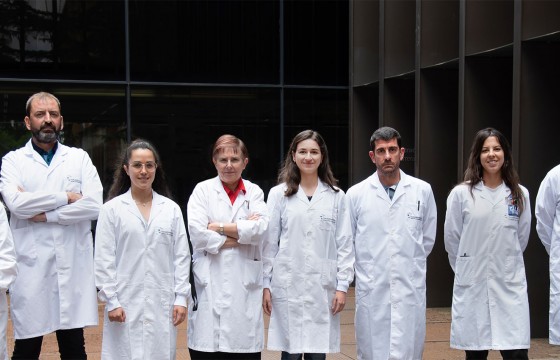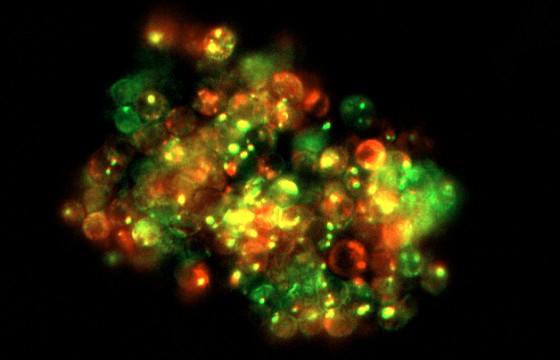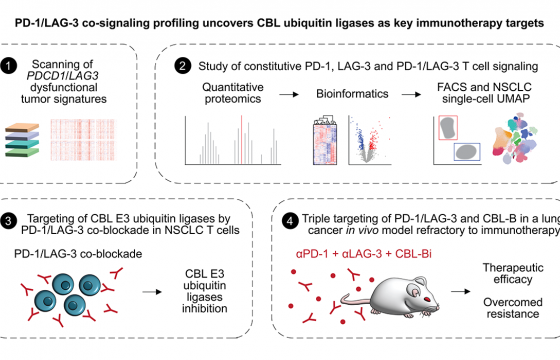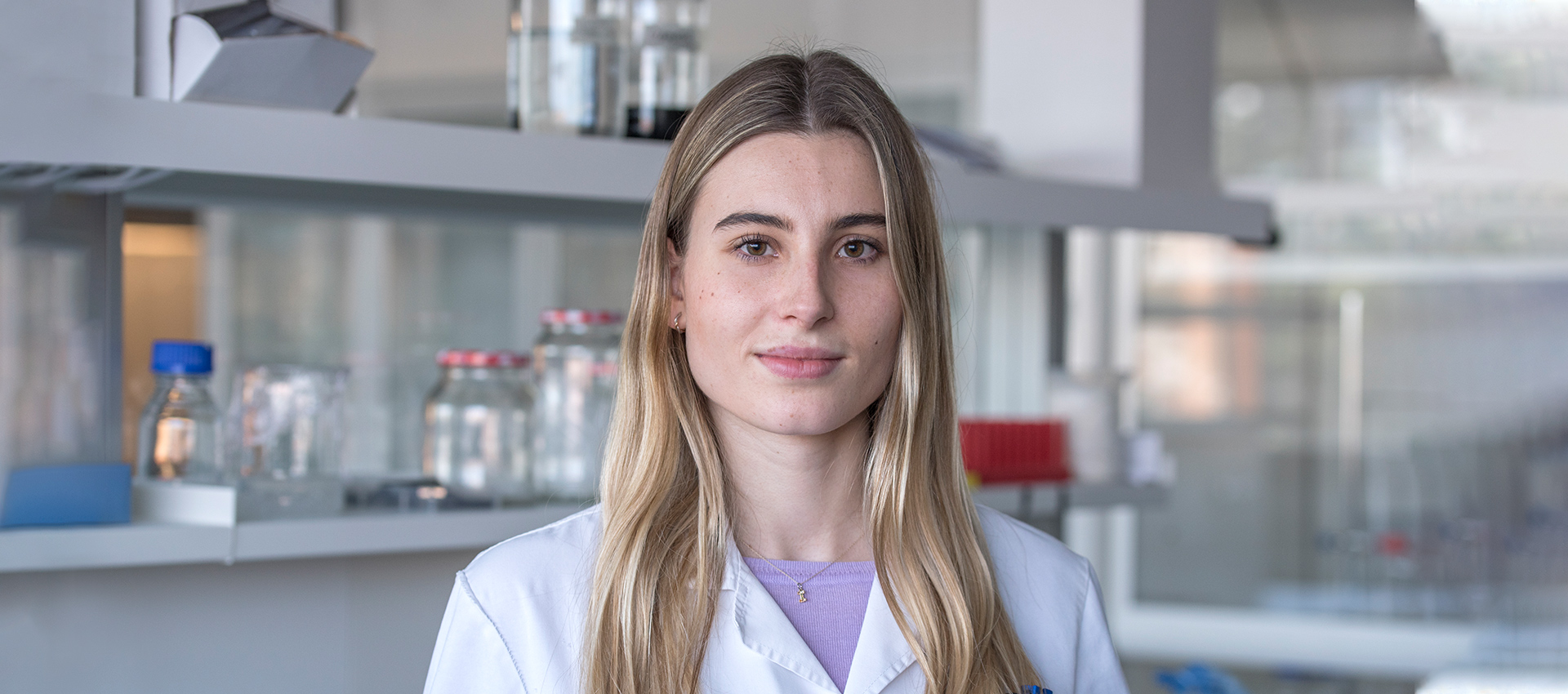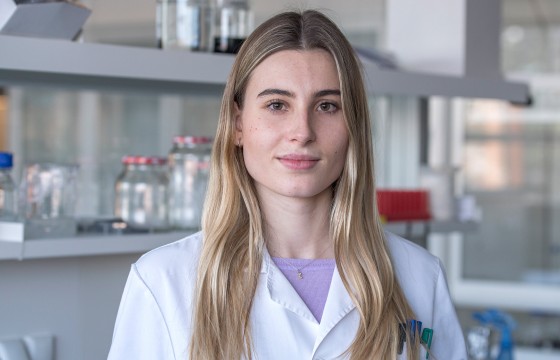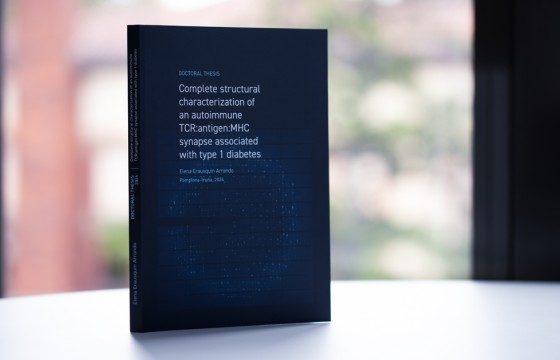President Chivite launches the events for the celebration of the tenth anniversary of Navarrabiomed
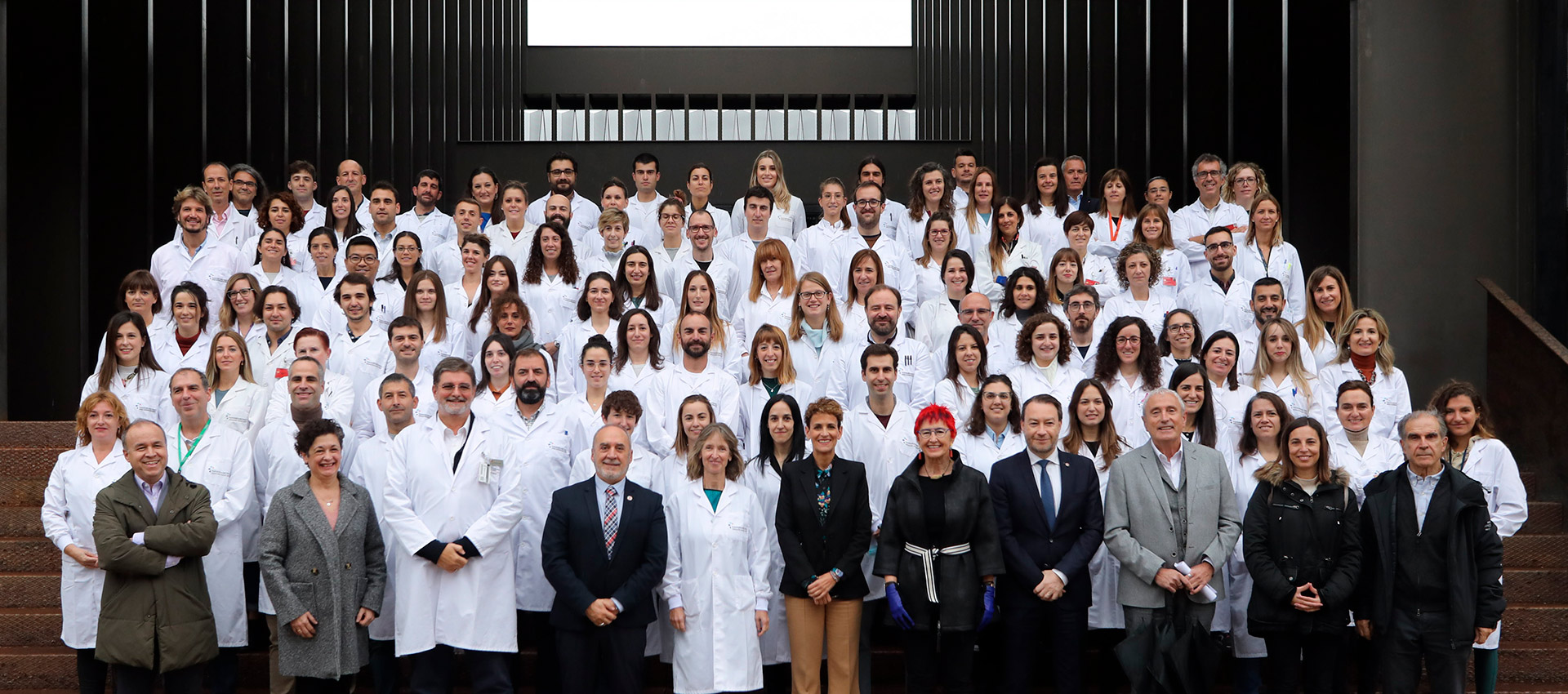
- The exhibition "From the cell to the patient. 10 Years moving forward together" was inaugurated this morning at the biomedical research centre
President Chivite launches the events for the celebration of the tenth anniversary of Navarrabiomed by inaugurating the exhibition "From the cell to the patient. 10 Years moving forward together ". Navarrabiomed, a joint centre of the Government of Navarra and the Public University of Navarra (UPNA), has been promoting, facilitating and conducting biomedical research for 10 years to develop therapies that improve the quality of the public health system.
This is an exhibition that highlights, with an informative approach, the challenges and opportunities posed by the integration of biomedical research in the clinical practice of the public health system over the last ten years. Currently, the exhibits are located in Navarrabiomed's entrance hall and during 2023 it will become a travelling exhibition scheduled to be located in different exhibition spaces around the Foral Community in order to reach the Navarrese citizenship. It will also be at the Pamplona Planetarium from mid-January 2023.
During the inauguration, the President highlighted the role of research: “Your work is essential to turn research into tangible results beneficial to citizens and the territory, as well as to strengthen our public health system“. On the other hand, she highlighted the commitment of the Government of Navarra to health research that guarantees the effective application of the results in terms of benefits for the health of citizens. “It is an essential mission that we have to promote from the public health systems. In recent years, the budget allocated to the Miguel Servet Foundation has been consolidated, with 2.7 million in 2017 reaching 3.5 million in 2020. And the preliminary draft budget 2023 proposes an increase of 12.5% compared to the previous year.”
Also present at the event were the Minister of Health, Santos Induráin; the Minister of University, Innovation and Digital Transformation, Juan Cruz Cigudosa; the dean of UPNA, Ramón Gonzalo; the director of Navarrabiomed, Maite Mendioroz; and members of the board of trustees of the Miguel Servet Foundation, Navarrabiomed's managing body.
10 years moving forward with Navarrabiomed
Maite Mendioroz recalled that the mission of the research centre “is to promote, facilitate and conduct biomedical research to implement and develop therapies that improve the quality of the public health system.” Promoted 10 years ago by the Department of Health of the Government of Navarra, it became, in 2016, a joint centre with the Public University of Navarra, with the aim of promoting biomedical research and enhancing the competitiveness of the bio-health sector of the region.
In this regard, she stressed that "the presence of Navarrabiomed on the HUN campus for 10 years is not a coincidence. This convergence of research centre, hospital and university is essential for the knowledge generated by the three institutions to be transferred to healthcare practice.”
Currently, the centre is divided into 20 research units and 6 scientific-technical services for the promotion of scientific research and technological development: Biobank, Clinical Trials, Methodology-Evaluation of health services, Proteomics, Animals, Experimental operating room and Clean Room of advanced therapies, CellMa, which bring together a total of 120 researchers. Through its support units, Navarrabiomed facilitates and promotes the research carried out by more than 250 health professionals from other public centres of the Navarra public health system. The director has rated the evolution of the centre of “extremely solid. It is curious to observe how a research centre evolves from being a very small centre with few research groups. In 2012, there were 49 of us, today we are 165. At the level of scientific output, it should be noted that, in 2013, Navarrabiomed published seven articles in journals indexed in JCR, five years later, 41 and in 2021, there were 181”.
She concluded by saying: “We have fulfilled the fundamental objectives of the Strategic Plan and today, we are working on the 2023-2027 Strategic Plan. After 10 years of work and now analysing what has happened, we can launch a new stage with many perspectives. We have great challenges ahead of us and we face them with enthusiasm and responsibility.”
Sustainable sculptures with augmented reality
Then those participating visited the exhibition "From the cell to the patient. 10 Years moving forward together / Zelulatik pazientera. 10 urte elkarrekin lanean". It involves 9 scientific exhibits in sustainable cardboard sculpture format that expose progress in biomedical research, as well as the challenges for health research. It is aimed at health personnel and the general public, and seeks to bring science closer to society through new interactive formats with augmented reality. To enjoy all the contents, the Navarrabiomed app can be downloaded for free (for Android and for iOS).
This project has received funding from the Department of University, Innovation and Digital Transformation of the Government of Navarra in the call for Grants for the Promotion of Scientific Culture, the dissemination of R&D&i carried out in Navarra and the promotion of COSMOS 2022 STEM vocations. The conceptual and visual design and the contents of the exhibition have been carried out by the Communication and Design Unit of Navarrabiomed. The company iAR (Industrial Augmented Reality) has been in charge of carrying out the programming in augmented reality and Tresatres, the printing of the exhibits.
Visits to the exhibition and scientific conference
Coinciding with the Science Weeks, visits to the exhibition will be organized to bring biomedical research closer to the public and promote scientific vocations. Each session includes a guided tour of the exhibition "From the cell to the patient. 10 Years moving forward together" and of the centre’s laboratories. The capacity is limited in all of them and those interested must book through the Navarrabiomed website www.navarrabiomed.es/en.
The program will end on Thursday, November 24, at 13:00 in the auditorium B of the University Hospital of Navarra, with the scientific conference entitled "The integration of biomedical research in clinical care practice: challenges and opportunities". It is a dialogue between Marina Berenguer Haym and Jesús Prieto Valtueña, both medical professionals and researchers with recognized careers. Those interested in attending should register previously.
